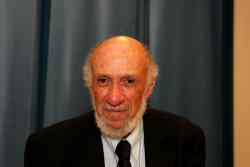HUMAN RIGHTS COUNCIL HOLDS DIALOGUE WITH SPECIAL RAPPORTEUR ON HUMAN RIGHTS IN OCCUPIED PALESTINIAN TERRITORIES
Human Rights Council HRC/12/85
MORNING 2 July 2012
Text UN
Photo Action Press/P.Virot
 The Human Rights Council this morning held an interactive dialogue with Richard Falk, the Special Rapporteur on the situation of human rights in the Palestinian territories occupied since 1967.
The Human Rights Council this morning held an interactive dialogue with Richard Falk, the Special Rapporteur on the situation of human rights in the Palestinian territories occupied since 1967.
Mr. Falk, introducing his report, said that Israel continued to refuse to cooperate with the mandate and expressed concern about Israel’s frequent use of administrative detention, and the expansion of Israeli settlements and related violence by Israeli settlers against Palestinians in the West Bank, including East Jerusalem. The main recommendations of the report included that a resolution should be adopted by the Human Rights Council and a special body be mandated to prepare a study on Israel’s use of administrative detention; that the Human Rights Council should commission a study on the adequacy of international humanitarian law to cover situations of prolonged occupation and provide Israel and the international community with appropriate recommendations; that the International Court of Justice should be requested to provide an Advisory Opinion on the Israeli practice of transferring detained Palestinians to prisons in Israel; and that the Human Rights Council should give increased attention to Israel’s refusal to cooperate with the normal functioning of the United Nations by way of the Special Rapporteur for the Palestinian territories occupied since 1967.
Palestine, speaking as a concerned country, said that the report of the Special Rapporteur recorded many of the violations committed by Israel but it contained only a small part of the systematic violations that took place and extended over the occupied Palestinian territory and into all aspects of human rights. These included the confiscation of Palestinian territory, the destruction of Palestinian property, and attacks carried out by settlers with the protection of the occupying authorities. These attacks compounded the suffering of the Palestinian people caused by the restriction of contact with the outside world, affecting the capacity of victims to reach hospitals and preventing delivery of humanitarian aid and food. Palestine asked the Special Rapporteur to clearly state the legal implications of Israel’s failure to comply with international human rights mechanisms and how this would reflect on Israel’s membership to international organizations.
Israel was not present in the room to take the floor. At the end of the meeting, the President of the Human Rights Council, Laura Dupuy Lasserre, called on Israel to resume its cooperation with the Council and the Office of the High Commissioner for Human Rights.
During the interactive dialogue, speakers expressed concern about the decision of Israel to suspend its cooperation with the Office of the High Commissioner, the Council and its mechanisms for the protection of human rights. Speakers reiterated alarm at the building of Israeli settlements on Palestinian territory, the continued practice of administrative detention, including against women and children, limitations to the freedom of expression and movement, and settler violence against Palestinians and their property.
Mr. Falk, in concluding remarks, said that the stature and legitimacy of the Human Rights Council was itself at stake and that it was important to distinguish the pattern of non-cooperation from one of non-compliance with human rights standards and the related defiance of international law obligations. For the Human Rights Council to retain its own credibility, it had to move beyond rhetoric and find ways to take seriously the suffering of the Palestinian people and adopt measures commensurate with that suffering and display a political will to end the situation of lawlessness that had characterized the Palestinian occupation for so long.


